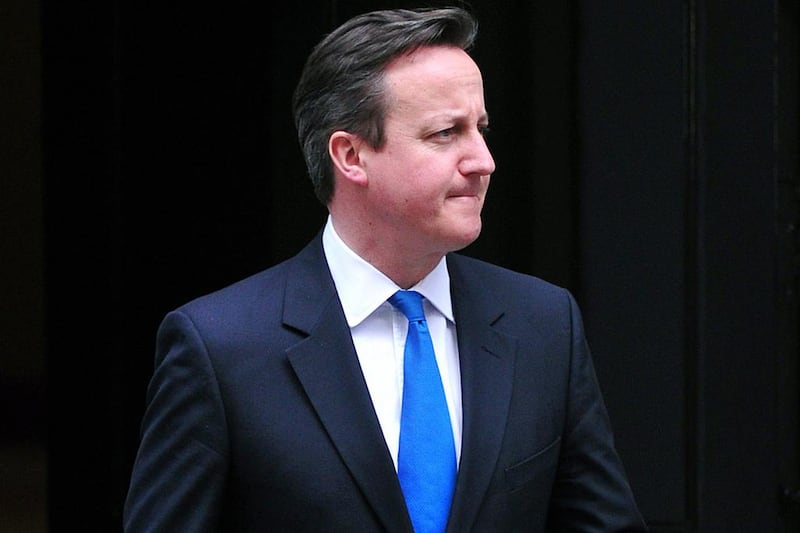LONDON // David Cameron, the British prime minister, has ordered an investigation into the Muslim Brotherhood over concerns that the group is planning radical activities from a base in London.
The intelligence agencies MI5 and MI6 have been tasked to gather information on the “philosophy and activities” of the group after several leaders fled to London following the removal from power of Mohamed Morsi, Egypt’s Islamist former president, last year.
The investigation would include an assessment of claims that the Islamist group was behind a suicide bus bombing that killed three South Korean tourists in Egypt’s south Sinai in February and several other attacks, The Times newspaper reported.
It could reportedly lead to a ban on the Muslim Brotherhood in Britain, which is already outlawed in Egypt and Saudi Arabia.
“The Muslim Brotherhood has risen in prominence in recent years but our understanding of the organisation — its philosophy and values — has not kept pace with this,” said a Downing Street spokesman.
“Given the concerns now being expressed about the group and its alleged links to violent extremism, it’s absolutely right and prudent that we get a better handle of what the Brotherhood stands for, how they intend to achieve their aims and what that means for Britain.”
The review is being led by John Jenkins, Britain’s ambassador to Saudi Arabia.
The Muslim Brotherhood did not respond to a request for comment. But a spokesman was quoted by The Times as saying that it was a “religious obligation for any Muslim Brotherhood member” to cooperate with the review and to respect British laws.
The Brotherhood was founded in Egypt in 1928 and, despite years of repression, it remains the largest Islamic movement in the Middle East, having returned to prominence during the Arab Spring.
Mr Morsi, the group’s former leader, became Egypt’s first elected civilian president after the toppling of Hosni Mubarak in 2011, but he was ousted by the army last July after a single year in power. He now faces trial for treason.
Egypt’s military-installed government in December declared the Brotherhood a terrorist organisation. Saudi Arabia followed suit last month.
In Egypt, more than 1,400 people have been killed in street clashes and thousands jailed, including the Brotherhood’s top leadership. A judge triggered a global outcry last month for sentencing 529 convicted Brotherhood leaders to death for rioting.
Egyptian authorities have blamed the Brotherhood for a series of terror attacks, but an Al Qaeda-linked group called Ansar Beit Al Maqdis claimed responsibility for the Sinai bus attack that the British are reportedly examining the Brotherhood’s links to.
London acted following reports that Brotherhood leaders had met in London last year to decide their response to the Egypt crisis.
* Agence France-Presse





